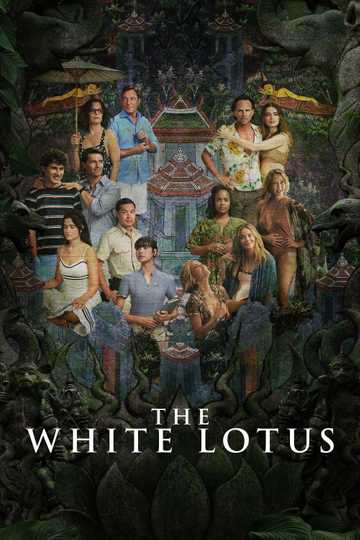Season 2 Episodes
1. Lake Shikotsu
In this episode, we visit Lake Shikotsu, a 30-minute drive from New Chitose Airport. Over one million tourists visit here annually to enjoy the impressive nature, not only during summer, but also winter events like the Lake Shikotsu Ice Festival. Shikotsu is renowned for its crystal-clear waters. Join our program host Charlotte Kate Fox as she experiences the beauty of the lake up close on a special kayak designed for viewing beneath the surface of the water. Also, you can enjoy our rare footage of creatures that inhabit Lake Shikotsu.
2. Hitsujigaoka Forest
In this episode, we discover Hitsujigaoka Forest, located in the southern suburbs of Sapporo city. In fact, the forest of this region was once completely destroyed by a big fire, but has since regenerated after a long period, making it a unique area within Japan. Our program host will visit an arboretum (run by the Forestry and Forest Products Research Institute), which contains over 300 different species of trees and is open to the public to explore for free. You can experience Hitsujigaoka’s nature up close by observing a wide variety of trees as well as witnessing the rare footage of wild birds that live in this forest.
3. Biei Forest
In this episode, we explore Biei Forest, located at the foot of the Taisetsu mountain range. Experience the power of the great nature, destroyed and built up countless times by volcanic eruptions. Our program host will step into the forest to observe signs of this destruction and rejuvenation up close, and also encounter something rare: a tiny patch of broadleaf trees growing in a dense forest of conifers. You can also enjoy rare footages that reveal the truly unique nature born of volcanic mountains, and the secrets of the mysterious cobalt-blue pond.
4. Forests in Sapporo, Winter
This episode features Sapporo, a city with a population of 2 million. Just west of the city center is a vast expanse of forest to enjoy, left virtually untouched since Sapporo's pioneering days. With over 100 different species of trees, a large variety of small wild birds and animals call this forest home. Witness rare footage of Eurasian red squirrels, captured in their natural habitat as they spend the harsh winter without hibernating, while actress Charlotte Kate Fox explores the forest on a guided tour.
5. Severe Winter in the Taisetsu Mountain Range
In this episode, we explore the Taisetsu mountain range, with peaks reaching 2,000 meters. Take in the beauty of the unique landscape created by snow and ice over the harsh winter months as the program host visits the Sounkyo hot spring resort in the northern region of the Taisetsu mountain range. Here, the annual Ice Fall Festival is held, featuring enormous objects made of ice. The host goes trekking through this extreme winter region while encountering spectacular scenes of snow and ice. You can also see rare footage of the vast hidden nature of the Taisetsu Mountain range during the severe winter.
6. The Forest of Tomakomai
This episode's stage is Tomakomai, which is situated south of Chitose city where the New Chitose airport, the gateway to the skies of Hokkaido is located. We will introduce you to fields filled with great nature located right next to urban areas full of factories and residences. Our host will visit Lake Utonai, an area well known as a resting area for migratory birds where he will attempt bird watching with a guide. In addition, we will show you rare footage that captures the majestic views of the forest that spreads throughout Tomakomai along with the creatures that live in it.
7. The Harsh Winter of the Sea of Okhotsk Coast
Our stage today is located in eastern Hokkaido, the winter of the Sea of Okhotsk coast. It is a very precious place where drift ice can be seen in Japan. Our host, Charlotte Kate Fox, will attempt “drift ice walking” with the help of a guide. It is an activity unique to this area where participants wear a dry suit and walk on the drift ice as well as float in the ocean with it. We will also present rare footage such as that of a frozen waterfall that can be seen from the shore and the courtship of water birds.
8. Harsh Winter on the Tokachi River
Our stage today is the Tokachi River, located in the eastern part of Hokkaido. We will fully enjoy the nature of this 156-kilometer-long river that fertilizes the vast Tokachi Plain. Our program host, Charlotte Kate Fox, will attempt to go down this river in a rubber boat with a guide during the coldest period. We will encounter the enormous Steller's Sea Eagle, with a wingspan of over 2 meters as well as the Red-crowned Crane, a special natural monument of Japan. We will also see many spectacles of the Tokachi River in winter, such as the frozen rivers created by the harsh cold and the Spotted Seal biding its time on ice.
9. The Nature Surrounding Noboribetsu
Our stage today is Noboribetsu, one of Japan’s major hot-spring resorts, located in the southern part of Hokkaido. You will see many volcanic ducts and hot water spouts along the valley which suggests that vigorous volcanic activity is still taking place. Our host, Charlotte Kate Fox, tries out a natural hot spring footbath, which has water flowing into the river. She will then explore the town at night, which reveals a completely different atmosphere. We will also present rare footage such as a primeval forest surrounding the hot-spring town, as well as wild birds which depend upon the volcanic warmth to survive Hokkaido’s bitter winters.
10. Early Spring on the Shiretoko Peninsula
Our stage today is the Shiretoko Peninsula, which is registered as a World Natural Heritage Site. Our host will take a walk in the forest in search of animals unique to Shiretoko in early spring. During the 3-hour long walk, we encounter the Sika Deer and Siberian Flying Squirrel, who have survived the long and harsh winter. We then enjoy a superb view of the Sea of Okhotsk with its gently floating drift ice. We will also see rare footage of animals that make clever use of the forest and plains of Shiretoko to survive the winter.
11. Spring in Onuma
Our stage this time is Onuma, a scenic spot in southern Hokkaido. Located at the foot of a volcano, with lakes dotted with some 126 tiny islands of varying sizes, enjoy the spectacular view of this unique waterfront. Our program host Charlotte Kate Fox, tries out snowshoe trekking led by a guide. She climbs a mountain nearby to get a magnificent view of the lakes and surrounding mountains. And later, observe the local wildlife in Spring, such as the gathering of waterfowl, as well as the mating of Ezo Brown Frogs.
12. The Beech Forest of Oshima Peninsula
Our stage this time is Japan’s northernmost primeval forest containing Seibold’s beech trees, which is in the Oshima Peninsula of southern Hokkaido. Our program host Charlotte Kate Fox goes on a snowshoe trek with a guide in the Siebold’s beech forest, one of Japan’s national natural monuments. She mimics the bird song using an instrument called “the Bird Call”, to attract wild birds. And later, let’s observe the local wildlife of the Oshima Peninsula in the bountiful season of autumn.
13. Matsumae
Our stage this time is Matsumae, a town located on the southernmost tip of Hokkaido. Being separated from Honshu by a narrow stretch of sea, Matsumae is well-known for having the earliest bloom of cherry blossoms in Hokkaido. Our program host takes a stroll through the cherry blossoms, in full bloom, surrounding the castle of Matsumae. He also gets a wonderful view of plum blossoms, which are blooming at the same time. We’ll be introduced to a variety of recommended activities of the region, as well as taking a cruise along the coast. Experience nature in all its glory during the prime season of the region, spring during April and May.
14. Mt. Tossho
Our stage this time is Mt. Tossho, which is located north of Asahikawa, Hokkaido’s second-largest city with a population of over 300,000. Since long ago, people use firewood from the mountain, which is indispensable for their lives. Our program host, Charlotte Kate Fox, tries her hand at splitting firewood with an axe. After that, she enjoys outdoor activities including a nice warm fire from her own cut firewood. Later, we’ll show you many treasures of Mt. Tossho, such as one of Japan’s largest clusters of Fawn Liles, blossoming as the winter snows have melted.
15. Lake Miyajima
Our stage this time is Lake Miyajima, a small lake about 45 km north of Sapporo. With up to 85,000 birds at one time, this is one of the largest migratory stops in the world for the Greater White-fronted Goose. The Greater White-fronted Goose has a wingspan of almost 1.5 meters and is a protected species in Japan. We show rare footage of the geese resting at Lake Miyajima on their return route to Siberia after spending the winter on Japan’s mainland. Also, join our program host as he observes the birds live himself.
16. Kushiro River
Our stage this time is the Kushiro River, flowing from the second-largest lake in Hokkaido, Lake Kussharo. The Kushiro River stretches around 150 kilometers. Without a dam in its entire length, it is known for its calm waters, and downstream, Japan’s largest wetlands called the Kushiro Marsh spreads forth. Our program host takes a canoe tour starting at the river source in Lake Kussharo and experiences firsthand the “crystal clear underwater world” of the spring-fed streams. After that, watch rare footage of the wildlife of the serene waters of the Kushiro River.
17. Rebun Island in Spring
Our stage this time is Rebun Island, located off the coast of northern Hokkaido. A large variety of alpine plants thrive in this complex landscape and cool climate. As such, Rebun is home to a unique ecosystem, and has earned it the nickname ‘floating island of flowers’. Our program host explores the beautiful flowers blooming in June, some of which are endemic to the island. And later, we show you the rare footage of the birds that live on the island.
18. The Shores of Shakotan Peninsula
Our stage this time is the Shakotan Peninsula western of Hokkaido, jutting out into the Sea of Japan. Beautiful seawaters, called “Shakotan Blue”, spreads forth before us. Our program host, Charlotte Kate Fox, explores Cape Kamui, at the tip of the peninsula, with a guide. She walks along the sheer cliffs overlooking the sea, enjoying the unique rocky landscape and seasonal flowers. Later, we show you footage of tiny crabs and fish that find unusual ways to survive in the tide pools along the shoreline.
19. Etomo Peninsula in Muroran
Our Stage this time is Muroran, an industrial city representing Hokkaido. Nature dynamically spreads out immediately beside the industrial area. Our program host, Charlotte Kate Fox, boards a dolphin-watching cruise. She enjoys the majestic view of Etomo Peninsula jutting forth into the sea, as well as an encounter with a pod of Pacific White-sided Dolphins. Later, we show you footage of the precious wildlife of Muroran, such as that of a falcon, which nests among the rocks along the seaside, as it hunts Slaty-backed Gulls.
20. Teuri Island
Our stage this time is Teuri, an island sitting in the Sea of Japan in the west of Hokkaido. There are about 300 varieties of wild birds on the island. Our program host visits an observatory above the cliffs, observing the world’s largest breeding ground for Rhinoceros Auklets, and watching its battle over fish with a black-tailed Gull. Later, we show you rare footage of a Spectacled Guillemot catching fish in the water and returning to its nest.
21. Okhotsk Summer Flower Garden
Our stage this time is Koshimizu Natural Flower Garden, facing the Sea of Okhotsk in eastern Hokkaido. From June to August, around 40 varieties of flowers bloom all over. In the cold climate along the shores of the Sea of Okhotsk, alpine flowers bloom near the coastline. In this episode, we show you footage of many flowers in bloom. Then, our program host does some bird watching at the flower garden and encounters some migratory birds during spring such as African Stonechat and Siberian Rubythroat.
22. Takanegahara Plateau in the Taisetsu Mountain Range
Our stage this time is Takanegahara Plateau, stretching 6 kilometers north to south, located in the Taisetsu mountain range. The indigenous Ainu people called this area ‘the playground of the gods’. Our program host hikes toward the 2000-meter-high peaks, to have a view across Takanegahara Plateau. On his way, he observes Brown Bears and a Northern Pika, which is said to be a survivor from ancient times. Later, we show you footage of various animals’ activities, only seen during a short summer on Takanegahara.
23. Akan’s Forest
Our stage this time is Lake Akan and its surrounding nature in the east of Hokkaido. Akan’s nature is comprised of its volcanoes, its lakes, and its hot springs. The beautiful topography around Lake Akan is a result of volcanic activity around 12,000 years ago. Our program host gets on a ferry and observes Marimo balls, the symbol of Lake Akan, and enjoys a hike through the forest with his guide. Later, we show you rare footage of the forest with a rich combination of needleleaf and broadleaf trees, as well as mushrooms that play a vital role in forest regeneration.
24. Sarobetsu Plain
Our stage this time is Sarobetsu Plain, located in Hokkaido’s north, facing the Sea of Japan. We show you the rare footage of the wild birds that migrate across vast plains. Stretching 30 kilometers north to south, the plain is populated by migratory birds that fly from Russia to Japan to spend the spring and fall seasons. Over 200 different species of wild birds have been recorded here. Our program host strolls around the vast plain with a guide and observes wild birds such as Bean Geese, the largest species of goose found in Japan.



















